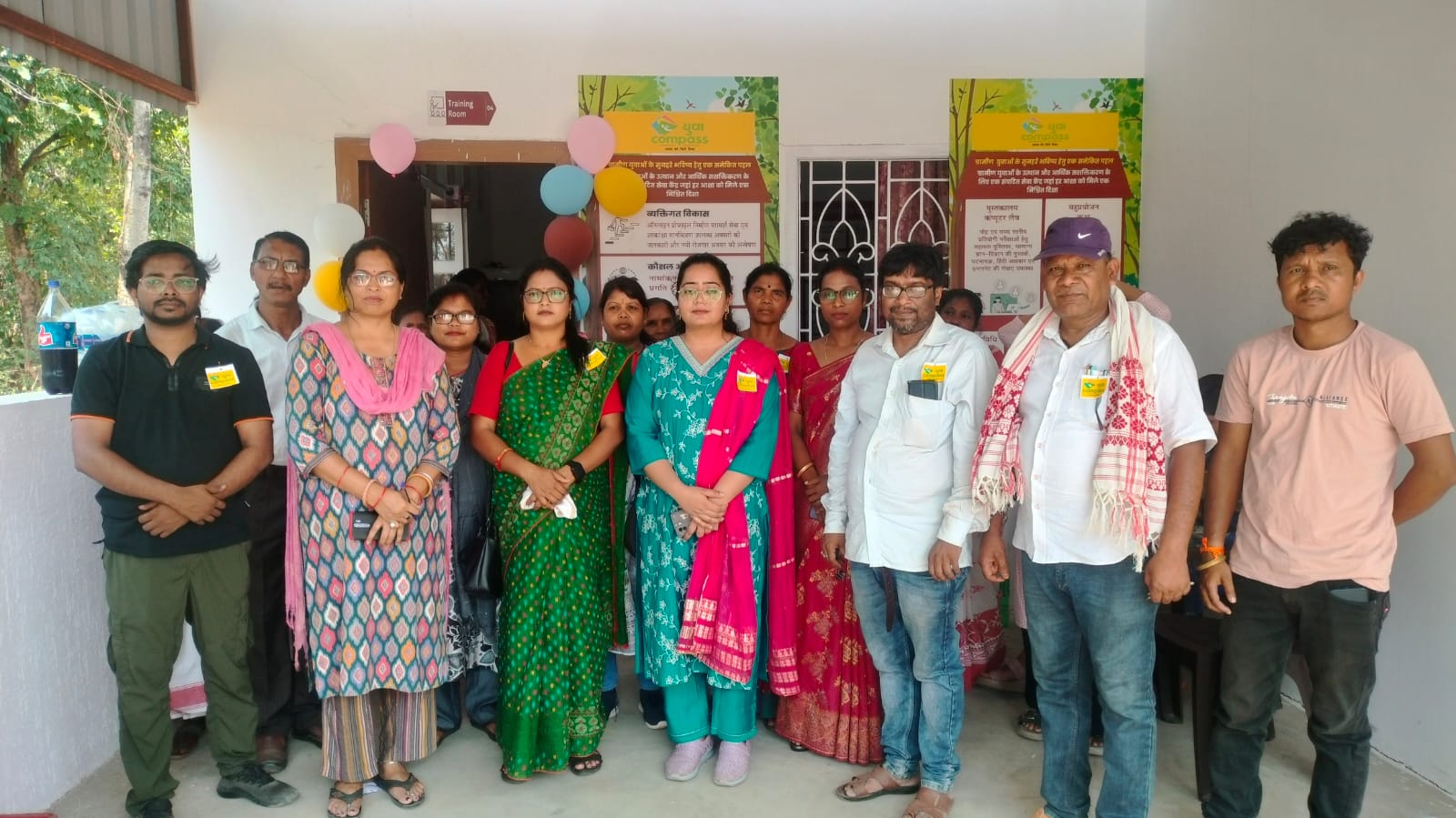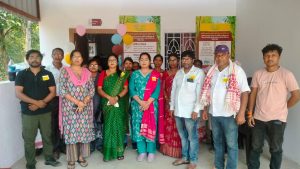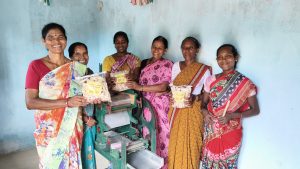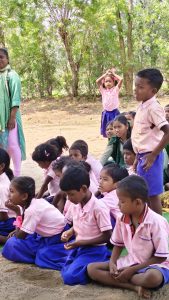- Finding Solutions, Stories from the Field

Growing up in the city of Jamshedpur, my view of rural India was mostly shaped by cinema—films where actors like Nargis, Manoj Kumar, Balraj Sahni, and Sunil Dutt ignited the screen with stories of patriotism and the dream of building a “New India.” Their passion stirred pride in my heart, but it wasn’t until I graduated that rural India became real for me—not just a backdrop for storytelling, but a living, breathing reality.
My academic journey helped me understand the rural economy, but it was only after joining Transform Rural India (TRI) that I discovered my true calling. Many organizations work to empower communities, but what sets TRI apart is our “Whole of Life” approach—a multidimensional, community-first model focused on transforming 100,000 of India’s most vulnerable villages into thriving communities.

As the saying goes, “easier said than done.” It wasn’t until I stepped into the villages of Jharkhand that I truly saw the deep divide between India and Bharat—a gap that keeps thousands trapped in extreme poverty. I realized how fortunate I was to grow up with access to education, the freedom to dream, and the safety to pursue it. Just a few hours from Jamshedpur, I met girls and women who were denied these very basics. In some places, child marriage, untouchability, and systemic injustice were simply part of life.
That experience shifted something in me. It taught me that inspiration doesn’t always come from those who “make it,” but from those who endure. Resilience, perseverance, and quiet strength—these were the qualities I began to see everywhere.
My journey led me to Kurdeg village in Simdega district. I went from being a passive observer of inequality to an active participant in addressing it. Today, I support community-led initiatives that aim to improve education, livelihoods, and dignity—especially for women and youth. It’s about ensuring families don’t have to choose between sending a child to school and putting food on the table. It’s about girls being seen not as burdens, but as assets. And it’s about giving young people options beyond migration and despair.
Of course, living and working here hasn’t been easy. Back home, life was full of conveniences—food delivery apps, online shopping, uninterrupted electricity. In Kurdeg, those things feel like luxuries. There are days when the power is out, the roads are rough, and transportation is hard to find. As a woman, I’m often seen through many lenses—too young, too bold, too quiet, too different. But it’s also because I’m a woman that many didis relate to me, trust me, and open up.
In just seven months, we’ve built something powerful—a circle of trust, a safe space where we share our stories, laugh through challenges, and sometimes cry together. These connections have become the foundation of my work.
A typical day here is vastly different from one in Jamshedpur. Instead of coffee shops and office meetings, I’m visiting schools, talking to didis, engaging with youth, meeting parents, and collaborating with local officials. The work is challenging, but it’s also deeply fulfilling. And every evening, I carry with me stories—stories that motivate me to keep going.
I’ve learned that our greatest strength often emerges in our hardest moments. I’ve found mine in the power of listening, in empathy, and in simply showing up. My upbringing taught me compassion; my work has taught me resilience. Through writing, sketching, and designing, I find ways to express what words can’t always say. But above all, I hold onto hope—hope that even the smallest acts can lead to lasting change.

One encounter I’ll never forget: a 12-year-old girl once came to my home, asking for work. She shared her heartbreaking story of abuse and neglect. Before leaving, she looked at me with wide eyes, called me “pari jaisi” (like a fairy), and placed a bindi on my forehead. The next morning, I found a small pile of bindis left for me—a silent yet powerful gift that I carry in my heart.
In this field, support matters. As women, we need spaces where we can rest, reflect, and just be. Supportive teams, strong mentors, empathetic leadership, and open conversations around mental health can make all the difference. I’ve been lucky to have a team that feels like family—holding me up on the toughest days.
There’s one didi who always comes to mind when I think of strength. Abandoned by her husband and shunned by her community, she joined a self-help group. Through it, she rediscovered her confidence and now supports her family on her own. Her journey is a reminder that belief can be transformative.
This journey has redefined what justice and development mean to me. It’s not about forms, files, or policies—it’s about dignity, choice, and voice. It’s about showing up, standing by others, and drawing courage from the quietest acts of resistance. This work has made me both softer and stronger—more in tune with people’s needs, and more committed to my purpose.
Looking ahead, I dream of a Kurdeg where every child is fed, educated, and loved. Where girls walk to school without fear. Where development means dignity—not dependency. Personally, I hope to keep learning, creating, and carving out space for those who need it. And perhaps, in doing so, the small spark I carry will ignite a path for someone else to follow.

Reach us at
TRI Square,
43 Community Centre Zamrudpur,
Kailash Colony Extension,
Behind Hanuman Mandir,
New Delhi,
Delhi 110048
+91 11 43068096